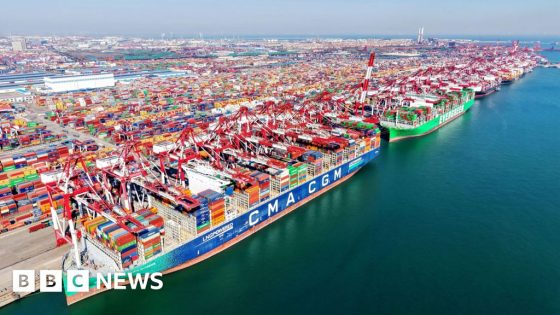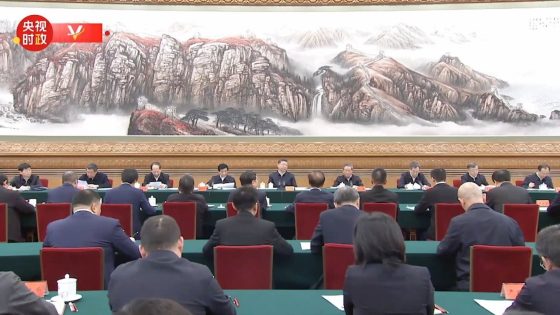Asian shares fell sharply on February 3, 2025, as US President Donald Trump implemented tariffs on Canada, Mexico, and China. Investors are concerned about the potential for a trade war that could adversely affect global economic growth and corporate earnings.
- Asian shares declined due to US tariffs.
- Investors fear a potential trade war.
- Canada and Mexico plan retaliatory tariffs.
- US dollar strengthens against Chinese yuan.
- Trump to discuss tariffs with leaders.
- Long-term risks from repeated tariffs noted.
The recent tariffs imposed by the Trump administration target the united states‘ largest trading partners, with Canada and Mexico facing a 25% tariff on their exports to the US, while Chinese goods will incur an additional 10% tax. The move has prompted Canada and Mexico to announce retaliatory tariffs, and China has vowed to respond with “corresponding countermeasures.” This escalation raises fears of a prolonged trade conflict that could impact global markets.
On the morning of February 3, Hong Kong’s Hang Seng Index dropped 1.3%, Japan’s Nikkei 225 fell 2.4%, South Korea’s Kospi tumbled by 3%, and Australia‘s ASX 200 was down 1.8%. Meanwhile, markets in mainland China remained closed for the Lunar New Year holiday. The US dollar reached a record high against the Chinese yuan, while the Canadian dollar fell to its lowest level since 2003.
Tim Waterer, chief market analyst at KCM Trade, noted that the potential for a long trade dispute between the US and China is causing investors to reduce risk exposure. Concerns are also growing about which countries might be next on Trump’s tariff list, with the president hinting at possible tariffs on the European Union.
While some analysts argue that tariffs could provide short-term benefits for the US economy, others warn of long-term risks. Charu Chanana, chief investment strategist at Saxo, cautioned that persistent tariff use could lead other nations to lessen their reliance on the US, ultimately undermining the dollar’s position in global markets.
The implementation of tariffs by the Trump administration has created significant volatility in Asian markets, reflecting investor anxiety about the implications of a trade war. As countries respond with their own tariffs, the global economic landscape may face further challenges.



























![[VIDEO]'Semoga hubungan yang terjalin tidak putus sampai bila-bila'](https://news.faharas.net/wp-content/uploads/2025/03/Unbreakable-Bonds-How-to-Ensure-Your-Relationships-Last-a-Lifetime-230x129.jpeg)





